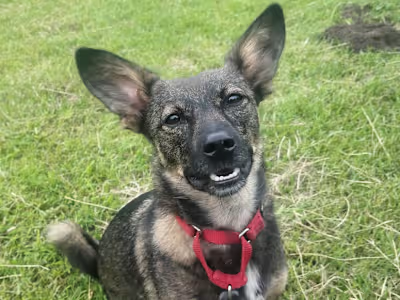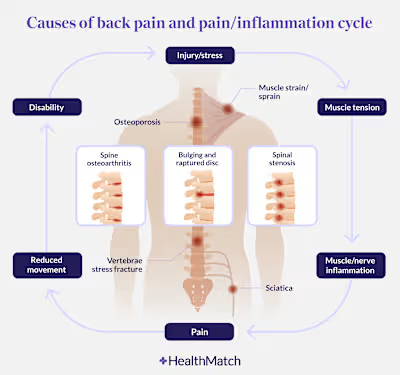Deep Editing: A Robotics Interview
Crafting a raw, 5,000-word transcript into a finessed 2,300-word interview
A client approached me with a raw transcript of an interview with an impressive woman in STEM. I have a huge passion for science, so I was really excited to work on this one!
His requirements:
🟥 The interview needed to be short enough for the science magazine they were publishing—that gave me around 2,500 words to work with at most.
🟧 Turn the raw, 5,000-word transcript into an engaging interview.
My requirements:
🟨 Actually understand what she was talking about—it was super intense to read!
An excerpt of the interview I received:
Do you see the world in a different way, now that you know you can actually use biological materials to build things?
I think I do; I think I'm just so much more appreciative of all of the things that are going right. Not only in our bodies, but in everything that we see around us in order for us to live this really comfortable and functional life, such that when one pathway, or like one gene gets knocked down, it can have this devastating effect. I think the whole reason I got involved in this research in the first place is because when I was doing one of my mindless, I can't get any other job, so I'm going to do this unpaid research internship
experiences. I talked about the story a lot, but essentially, I was in a lab where they were studying the effects of exercise on rats who were alcoholics, because alcoholic people and rats tend to have degenerated muscle and scalp exercise helps you build that back up, right, so they're like, my job as a teenager was to just spend hours in a basement every day of my first summer after college, putting tiny drunk rats on treadmills and watching them run and seeing how they adapted over time to different regimens. Turns out it can't completely counteract that damage, so wouldn't recommend that as a healing strategy. But it was a lesson, right? Like, I could see rats that were fed a different diet were behaving in a different way, rats that were exercising were having different bodies and different ways in navigating their world. None of the things I was doing in my traditional mechanical engineering courses with the materials we were building with there were able to adaptively, re-dynamically respond to their environment in that way. So, I think that was the first experience that made me really appreciate biology. Ever since then, I just haven't been able to stop and my friends make fun of me, because I have like, folders of really gross things on my phone, I'm kind of clumsy. So, I injure myself a lot, I have like a huge burn mark on my leg right now from making tea. But when something like that happens to me, my immediate response is to take a picture of it a couple times a day, every day for like, a few months. Then I save them in a folder because you can watch the wound healing response over time. It's disgusting. You’ve got to hide that folder. It's really gross. But it's, it's beautiful. Like, if you really look at what's happening, and the fact that you didn't have to do anything for this thing to go. And then a year later, you know, I had this horrible mark on my arm, I cut it open with a big knife, and it's gone, and that's so cool. It's so cool. I can show you pictures of how bad it was, and it really is truly amazing and it's gone now. So, I am appreciative of things like that, in a way that I think I wasn't
before.Itjust makes me think, how much work to do.Because the robots are so cool. It's the first of its kind, but it's so much lesssophisticated than we are. And just, it's kind of humbling to know how much work there is left to do to kind of understand and be able to replicate that in any meaningful way.
So, as you can see, it needs a lot of work and some serious concision skills!
Here's what I did with it:
Do you see the world differently now you know you can use biological materials to build?
I think so. I'm more appreciative of the things going right, letting us lead comfortable lives. When one pathway or gene gets knocked down, it can have devastating effects. I got involved in this research because I was in a lab studying the effects of exercise on alcoholic rats.
Alcoholic people and rats tend to have degenerated muscle, and exercise helps build it back up. I spent hours watching drunk rats on treadmills, seeing how they adapted to different regimens. Rats on varied diets behaved differently, and exercising rats had distinct bodies and ways of navigating the world. The materials in my mechanical engineering courses couldn’t adapt to their environment like that.
My friends mock me because I have folders of gross things on my phone. I'm clumsy, so I injure myself a lot; I have a huge burn on my leg from making tea. When something like that happens, my immediate response is to photograph it every day for a few months. You can watch the wound healing response, and it heals on its own. It's gross, but it's also beautiful. It’s humbling to know how much work is needed to understand and replicate that in any meaningful way.
So, what did I do?
🟥 I took a very raw transcript and corrected a lot of missing words/weird phrasing.
🟧 I retained the most vital parts that added intrigue and value to the interview.
🟨 I copy-edited the interview to ensure it was error-free and great to read.
🟩 I managed to take the interview from 5,000 words to 2,300. Phew!
🟦 I learned a lot about this super cool woman, and it excites me to know that she's out there inspiring young girls to follow their sciencey dreams.
And what did the client say?
"Victoria went above and beyond our expectations. She took a raw interview transcript and crafted it into an easy-to-read profile for our magazine. Her turnaround was very fast and she provided comments wherever she was unsure of anything. Very detail oriented. Highly recommend working with her."
Like this project
Posted Oct 9, 2022
Transforming a scientific interview from a raw 5,000-word transcript into a polished 2,300-word ready-to-publish magazine article. Before and after included!








